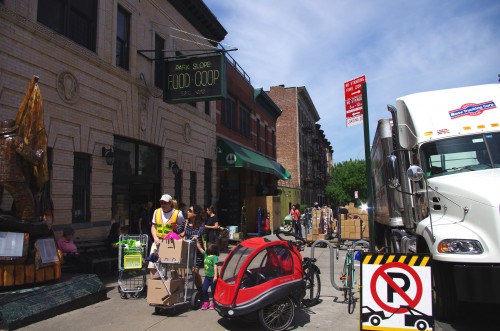 I told you about Bklnyr, a new and independent publication whose mission is to publish great journalism about Brooklyn. Capital New York called it an idea “so obvious it’s almost hard to believe it hasn’t already been done.”
I told you about Bklnyr, a new and independent publication whose mission is to publish great journalism about Brooklyn. Capital New York called it an idea “so obvious it’s almost hard to believe it hasn’t already been done.”
In Issue 5, which came out today, there’s an article about Jumaane Williams called “Troublemaker: Can an activist turned City Council member survive at City Hall.” Hillary Busis writes about how the Park Slope Food Co-op became an institution that will outlast the punchlines. To read the article in full you have to subscribe to Bklynr for $2 dollars a month. Here’s an excerpt from the Food Coop story:
One does not simply walk into the Park Slope Food Co-op.
Before they’re granted entry to Brooklyn’s most talked-about grocery store, guests must first visit its membership office — a cramped facility that, incidentally, housed the entire co-op when it was founded 40 years ago. The office shares space with the co-op’s childcare center and a meeting room, which hosts events with names like “Gluten Intolerance: Fact or Fiction?” (Those events, unlike the co-op itself, are generally free and open to the public.) It’s located at the top of a narrow staircase lined with dozens of fliers advertising drum lessons, free guinea pigs, and cooking classes courtesy of something called Purple Kale Kitchenworks.
Once they’ve ascended the steps, visitors are given bright orange stickers indicating their non-member status — but only after they’ve handed over photo identification. The members working the desk are asked to cross-check outsiders with the co-op’s database, ensuring that guests aren’t secretly co-op members in bad standing. (After a ten-day grace period, members who have been “suspended” due to missing their work shifts lose their shopping privileges.) Members must also sign in all outsiders and promise, in writing, that the guests will not shop.
